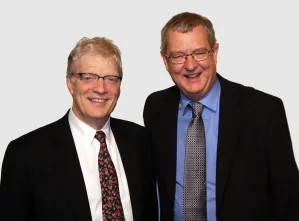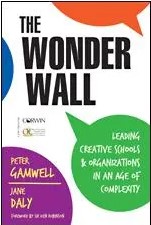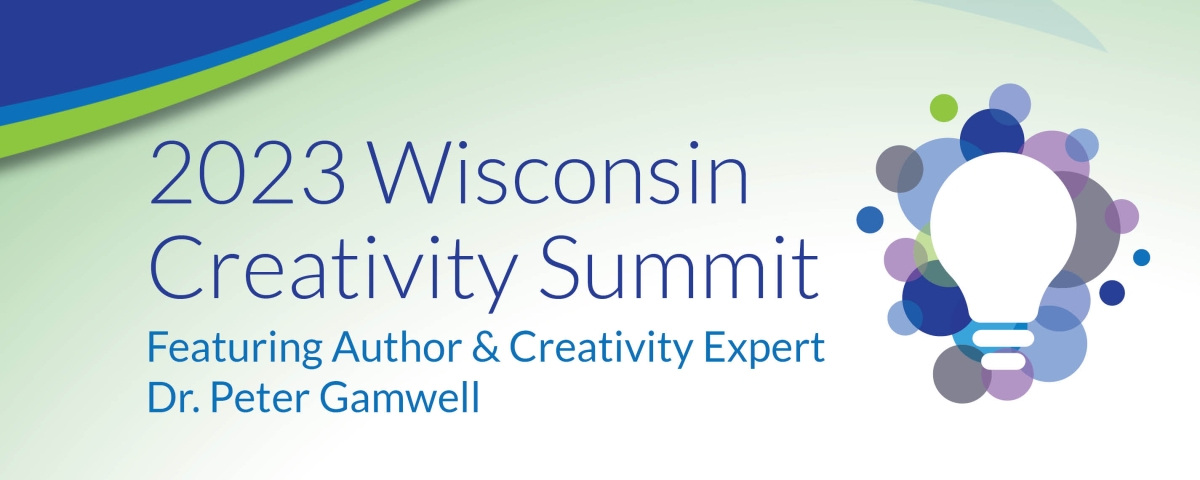
Summit Summary: On August 2020 we lost an important leader, spokesperson, and advocate for the arts and creativity. His name was Sir Ken Robinson. On August 21, 2023 the Department of Public Instruction hosted the first annual "Wisconsin Creativity Summit" online at 1:00 pm. The goal of the event was to inspire educators, administrators, policy makers, business leaders, and community members to consider the role of creativity in our schools. Dr. Peter Gamwell, author of "The Wonder Wall" and close friend of Sir Ken's started the event off with a chat about creativity and the urgent need for us to cultivate it in our children. The event will also included time for discussion and dialogue by participants.
A Future For Us All (Sir Ken Robinson Video)
Quotes From Dr. Gamwell
"What fascinated me most about it was that rather than the teacher guiding the students through a lesson, she had allowed them to take the lead, to follow their own natural curiosity, wherever it led them. The result was engagement, imagination, creativity, and learning."
engagement, imagination, creativity, and learning."
"It wasn't that someone had taught us to be creative or to master music; it was the environment that allowed and encouraged our seeds of brilliance and leadership abilities, which we already possessed to come forth."
"More often, it's creativity—the wonder walls, the innovation, and the "what if's"--that sparks and drives the learning."
"We are now living in what could best be described as a state of complexity: a time when there are no longer beginnings or endings but rather a continuous confluence of changes."
Quotes From Participants
Why is creativity essential for the future?
"Without creativity, we are unable to innovate. Problems with the global warming crisis, food scarcity, poverty and other issues we face in society are unable to be solved without creative ideas. It is essential not only to solving the aforementioned issues, but also to bringing forth hope for humanity. Creativity allows humans to express themselves and find connection with others. It also helps to further progress for the evolution of humankind." - Lauren Holum (Music Educator, Green Bay)
How can we increase opportunities for students to learn about and through creativity?
"Personalized learning plans that allow students to explore their true curiosity will naturally lead to creative problem-solving. Furthermore, allowing students to tackle complex, open-ended questions that are unbounded by traditional subject-area divisions would encourage more creative thinking. Reframing mistakes as learning opportunities allows students to develop the ability to be comfortable around uncertainty, which is a necessary disposition for creativity." - Mason Lehto (Art Education Student at UWS, Superior, WI)
"More open-ended questions/projects/lessons, less emphasis on grading/"accountability" (teachers and students), student centered strategies/student choice and voice within the learning process." - Karen Bruno (Artistic Director, Teacher, Northwest Girlchoir, Seattle, WA)
"Let go of grading, focus on feedback, encourage vulnerability and risk-taking." - Karen Ambrosh (District Library & Media Specialist, Greenfield School District, WI)
How can we increase opportunities for students to learn about & through creativity?
"Make space for creativity across subject areas and grade levels. Creativity should be considered an integral part of good pedagogy". - Sharon Daly (Instructor, Center for advanced academics, Cambridge, WI)
"Advocacy - teaching admin, parents and students the importance of creativity as part of the educational process. Providing teachers with opportunities to develop their own pedagogy that reflect student centered learning that naturally involves creativity." - Rich Tengowski (North Central Division President, National Association for Music Education)
"We need to start by increasing opportunities for teachers to learn about and through creativity. While we wait, we can build a culture of explicit feedback starting in Kindergarten where three successes are celebrated and one wish for next time is shared (Three stars and a wish, See Chappuis "Seven Strategies of Assessment for Learning") so that children learn EARLY that teacher feedback is intended for growth not as judgment. As kids age, their creative attempts become so personal that our feedback can be devastating unless we build a culture of explicit feedback by giving it early and often." - Kris VerSteegt (Education Program Consultant for Fine Arts, Iowa Dept. of Education)
